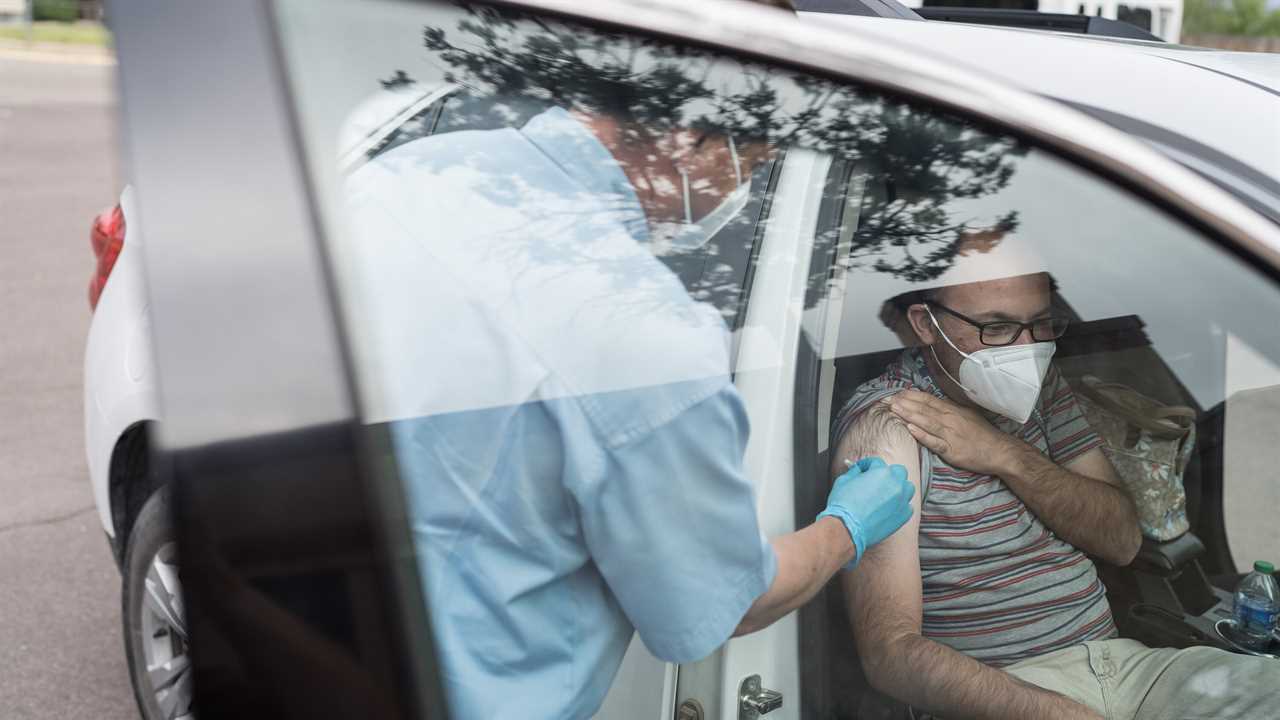
WASHINGTON — A panel of independent medical experts on Thursday unanimously recommended Moderna booster shots for many of those who had received the company’s coronavirus vaccine, paving the way to sharply expand the number of people eligible for an additional shot in the United States.
The advisory panel to the Food and Drug Administration voted 19 to 0 in favor of emergency authorization of a half-dose booster, at least six months after the second dose. Those eligible for the extra shot would include people over 65 and other adults considered at high risk — the same groups now eligible for a Pfizer-BioNTech booster.
The F.D.A. typically follows the panel’s advice, and should rule within days.
The recommendations come as the nation is seeing a decline in coronavirus cases but still faces nearly 90,000 new infections and roughly 1,800 deaths per day. The Biden administration has cast booster shots as an additional tool in the battle against the pandemic, while acknowledging that controlling the disease’s spread depends upon vaccinating tens of millions of Americans for the first time.
In a speech at the White House on Thursday, President Biden once again sought to rally businesses to support vaccination mandates that he said would help reduce the ranks of the unvaccinated in the United States, calling the number of people who have not gotten even a first shot “unacceptably high.” Mr. Biden encouraged Americans to seek out booster shots when they become eligible, calling them “free, available and convenient.”
More than seven million people in the United States have already obtained booster doses of the Pfizer-BioNTech vaccine, and more than a million have received third doses of Moderna’s, even though only those who with immune deficiencies are officially eligible.
Thursday’s vote was considerably smoother than the one the panel held last month, after a chaotic and at times acrimonious debate on whether the F.D.A. should authorize booster shots for Pfizer-BioNTech recipients.
On Friday, the same expert committee will meet to discuss and vote on whether the roughly 15 million people who received the single-dose Johnson & Johnson vaccine should also be eligible for booster doses. Its members are also supposed to discuss a new federal study that suggests those Americans might be better off getting a booster dose of the Moderna or Pfizer-BioNTech vaccines.
If the F.D.A. quickly authorizes Moderna booster doses, and if the Centers for Disease Control and Prevention signs off after a meeting of its own committee of vaccine experts next week, people in the eligible groups could begin seeking out the shots soon after. In addition to people over 65, those groups include younger adults at high risk of severe Covid-19 or serious complications because of medical conditions or their jobs.
Some committee members on Thursday decried the lack of more robust data justifying a booster. Dr. Archana Chatterjee, an infectious disease expert at Rosalind Franklin University, pointed out that cases were already declining here without widely available booster doses.
Other members said that the F.D.A. had set a precedent by authorizing additional shots for many recipients of the Pfizer-BioNTech vaccine, making it hard to deny vulnerable Americans who received the Moderna vaccine a chance to receive a booster.
“From a pragmatic point of view,” said Dr. Stanley Perlman of the University of Iowa, a committee member, “because we’ve already approved it for Pfizer, I don’t see how we can possibly not approve it for Moderna.”
To date, more than 103 million people in the United States have been fully vaccinated with Pfizer’s product, more than 69 million with Moderna’s and about 15 million with the Johnson & Johnson shot.
Dr. Patrick Moore, a panel member and virologist at the University of Pittsburgh, said he voted to recommend a Moderna booster based on a “gut feeling, rather than based on really, truly serious data.” Others questioned whether half a dose was the right amount, and whether a Moderna booster would work better if it was given at least eight months after the second shot, instead of six months.
The Coronavirus Pandemic: Latest Updates
- Utah’s new Covid cases are dropping, but hospitals remain overwhelmed.
- Latin American and Caribbean nations need to spend more on health, two U.N. agencies say.
- An Alaska lawmaker barred from flying over masking rules has Covid.
“I’m not sure we have actually identified the optimal regimen for these vaccines,” said Dr. Michael Kurilla, an infectious disease expert at the National Institutes of Health.
The panel made clear it did not favor expanding eligibility for booster shots beyond the higher-risk groups that qualify for Pfizer boosters. No vote was taken on that question, but the committee expressed concern that booster eligibility decisions could become a slippery slope.
Several experts said they were worried about recommending additional shots based on clinical trial results from just a few hundred participants.
“I’m not sure that we want to just explore it willy-nilly by giving it to a lot of people,” said Dr. Eric Rubin, an adjunct professor of immunology and infectious diseases at the Harvard T.H. Chan School of Public Health.
Dr. Peter Marks, the F.D.A.’s top vaccine regulator, said the agency’s experts would take the panel’s concerns to heart in considering whether younger adults without significant risk factors should become eligible for boosters. The agency “heard pretty loud and clearly that there was not a lot of appetite for moving down the age range very significantly, if at all,” he said.
State health officials say that the staggered rollout of boosters has left some especially vulnerable people — for example, elderly residents of nursing homes who got the Moderna vaccine — in the lurch. But some panel members said on Thursday that nearly two months after the Biden administration announced its booster plan, the rationale remained vague.






